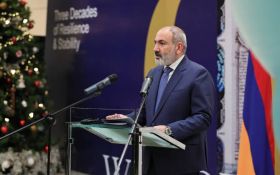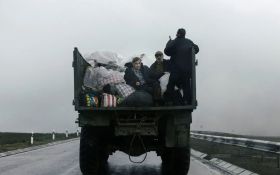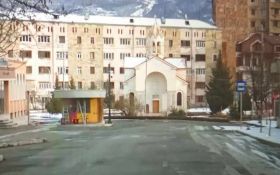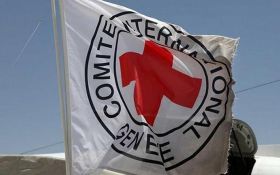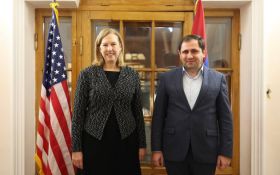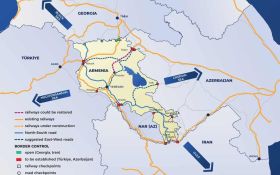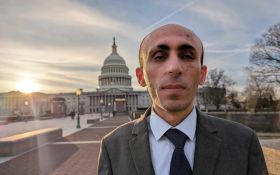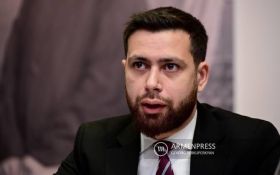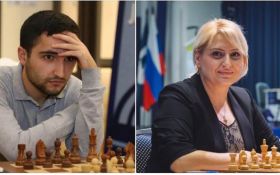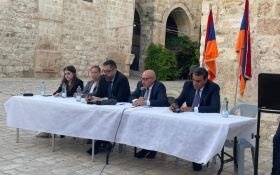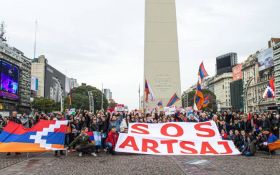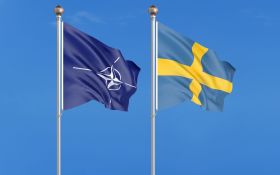For an uninformed casual news consumer, guarantees of security and rights for the people of Artsakh within the jurisdiction of Azerbaijan may sound perfectly normal.
The Humanitarian Crisis in Nagorno-Karabakh Exacerbates Regional Instability
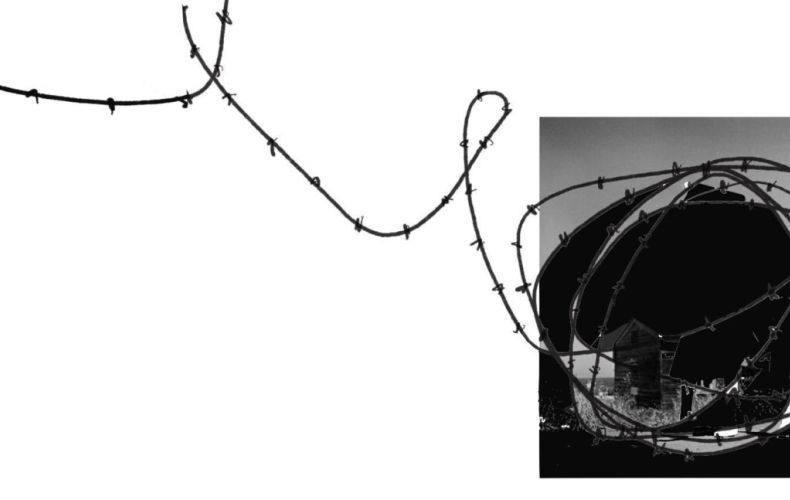
STEPANAKERT, JULY 25, ARTSAKHPRES: In the wake of the seventh months of total blockade and aggravating humanitarian catastrophe in Artsakh the offer to use the Aghdam route through Azerbaijan may equally appear as a fair deal to alleviate the suffering.
That is for an uninformed casual consumer of news. One can hardly assume that officials of the European Union or the U.S. State Department qualify it as such. One might assume also, that for this category, the informed officials, achieving stability in the region at any cost dominates the calculus. Such a calculus is erroneous. Genuine and sustainable stability in the region is illusory if one assumes this can be achieved at the expense of one of the regional stakeholders, the people of Artsakh. Ignoring the obvious political, moral and legal realities in addressing the plight of Artsakh is tantamount to watering the seeds of further instability with proliferating effects.
From the outset, Azerbaijan has been quite explicit about its views and intentions on the destiny of Armenians within the jurisdiction of Azerbaijan, both in words and in actions. The institutionalized ethnic hatred towards Armenians in general, and in Artsakh in particular, has for a long time been weaponized by the dynastic dictatorship in Baku. As the “convenient enemies” the Armenians are a useful deflector of internal troubles endangering the survival of the regime and justifying domestic repressions and abuses of the deep-rooted dictatorial tradition in Azerbaijan.
Taking cue from their victory in 2020, Baku vehemently denies the reality of Artsakh as a political entity, capable of self-government and democratic representation of its population. They attempt to persuade the world that historically, politically, legally there is no such thing as Nagorno-Karabakh. They “encourage” the Armenians in Artsakh to use a one way ticket out of their homes. They announce programs to populate Artsakh with ethnic Azerbaijanis in numbers far exceeding the present Armenian population of 120,000. To drive their points home, over the past two and a half years, they openly challenge the poor, half-hearted performance of Russia on the ground, as the party to have assumed direct responsibility for the security of Armenians in Artsakh. They consistently use force against Artsakh and disrupt basic normalcy of life there. In the past seven months this culminated with the imposition of a total blockade of Artsakh with an ensuing humanitarian catastrophe. Literally. The use of force and coercion is laced with demagoguery about reintegration or regional peace and stability. The offer of the Aghdam route for humanitarian relief in Artsakh is tantamount to an offer of a glass water by a torturer to his victim during the actual act of torture. It is morally degrading and demeaning human dignity, let alone contrary to international humanitarian law.
One does not have to be a clairvoyant to understand the consequences of such actions by a regime with a tradition of egregious and massive human rights violations against and dynastic domination of its own people. One doesn’t have to, but one might pretend or choose not to notice.
The region is known for attracting global power rivalries. Presently they have intensified. The war in Ukraine is a contributing factor. The rivalry is predominantly political. So are considerations of energy security and connectivity. However, will “stability” at any cost work for any of the global rivals? This is not an unusual or singular case in the history of global rivalries. For example, from 1975 and for the next 30 years, President Suharto of Indonesia learned the craft of manipulating global rivalries at the expense of the people of East Timor. Indeed, Western democratic powers have been predominantly preoccupied by the dangers of Soviet and Chinese penetration in Indonesia, and therefore consistently demonstrated total disinterest and disregard of the persistent existential threats to the East Timorese. Eventually, out of tireless resistance, thousands of deaths, consolidation and leadership, freedom was forged. Timor-Leste gained independence despite the lack of support to human rights and the right to self-determination of peoples.
Does it have to come this far for the people of Artsakh? Does it have to be another 30 years of plight, desperation and struggle? How badly would the existential threat to them need to be exacerbated and how many deaths would justify their right for freedom and life in dignity? Because materialization of the explicitly declared goals, objectives and intentions of the regime in Baku consequentially lead to forced deportations and ethnic cleansing. Those mass violations of human rights are sources of instability in themselves. One might choose to treat these threats as hyperbole. However, Azerbaijan has been spectacularly failing to prove its intentions otherwise. Violence is highly predictable, and resistance to violence should not come as a surprise. The seeds for the persistent instability are conspicuous. The warning signs are abundant.
As a matter of a historical fact, no one can confidently foresee the final outcomes of instability. The human cost of ignoring the seeds of instability is a matter of political and moral consequence for broader international peace. For every informed official in the global centers of power, the pursuit of national interest intent on sustainable regional stability in the South Caucasus urges action on these early warning signs of persistent instability.
For starters, present conditions at the source of the humanitarian catastrophe in Artsakh need to be withdrawn instantly, life in Artsakh should return to normal. It would be naïve to assume that Azerbaijan is inclined to act in good faith in this respect. Therefore, international pressure is necessary for achieving this.
The UN Security Council is the most effective platform for action to demonstrate the unsustainability of coercion in dealing with Artsakh. The Council has in its possession the necessary legal and political leverage for this. The Permanent Five of the Council comprises states with direct stakes in the region. In their otherwise deeply adversarial relations, forging a common position on the humanitarian crisis in Artsakh should bring to light a flicker of hope about whatever remains of their common responsibility for international peace. Armenia can in no way escape this dire situation. The ongoing bilateral track with Azerbaijan to seek peace cannot be sustainable if detached from the humanitarian plight of Artsakh.
Second, the United Nations has been equipped precisely to address humanitarian situations globally. So far, however, it has been successfully tamed by Azerbaijan’s false rhetoric and the thick curtain of sovereignty, behind which the regime in Baku hides. Furthermore, the Secretary-General is specifically mandated by the UN Charter to bring to the attention of the Security Council matters which in his opinion may threaten the maintenance of international peace and security. Failing so far to recognize that the humanitarian crisis in Artsakh is such a matter, and in order for him to have such an opinion, there needs to be a UN presence on the ground. He may seek a mandate from the Security Council to overcome the resistance of Azerbaijan in order for the UN system to reach the ground, alleviate suffering, gather information and report back to the Council.
Third, a meaningful and internationally mediated negotiating process between Artsakh as a de facto political entity, and Azerbaijan, the agenda of which is directly addressing and not limiting the scope of freedoms and rights of the people of Artsakh is an inevitable priority. International mediation is paramount in order to compensate for the inequalities of status between the parties. Without international mediation, it will hardly qualify as a negotiation, but would rather be an exercise of banging Azerbaijan’s ultimatums on the table. The United Nations, through a mandated special envoy, might be considered as a practical solution for an impartial international engagement and mitigation of global rivalries.
Such a minimum set of measures, combined with the bilateral process between Armenia and Azerbaijan could hopefully set the scene for genuine and sustainable regional stability, and for avoiding a fake peace. Hopefully, the global rivals in the region will recognize the futility and greater damage of watering the seeds of instability.
Zohrab Mnatsakanyan, Former Minister of Foreign Affairs of the Republic of Armenia




